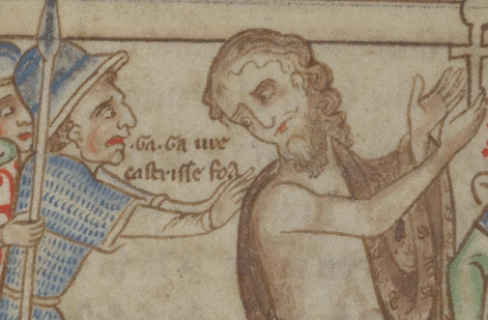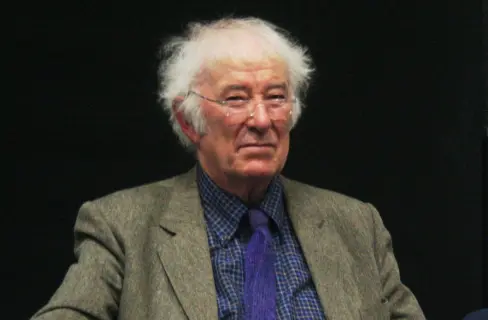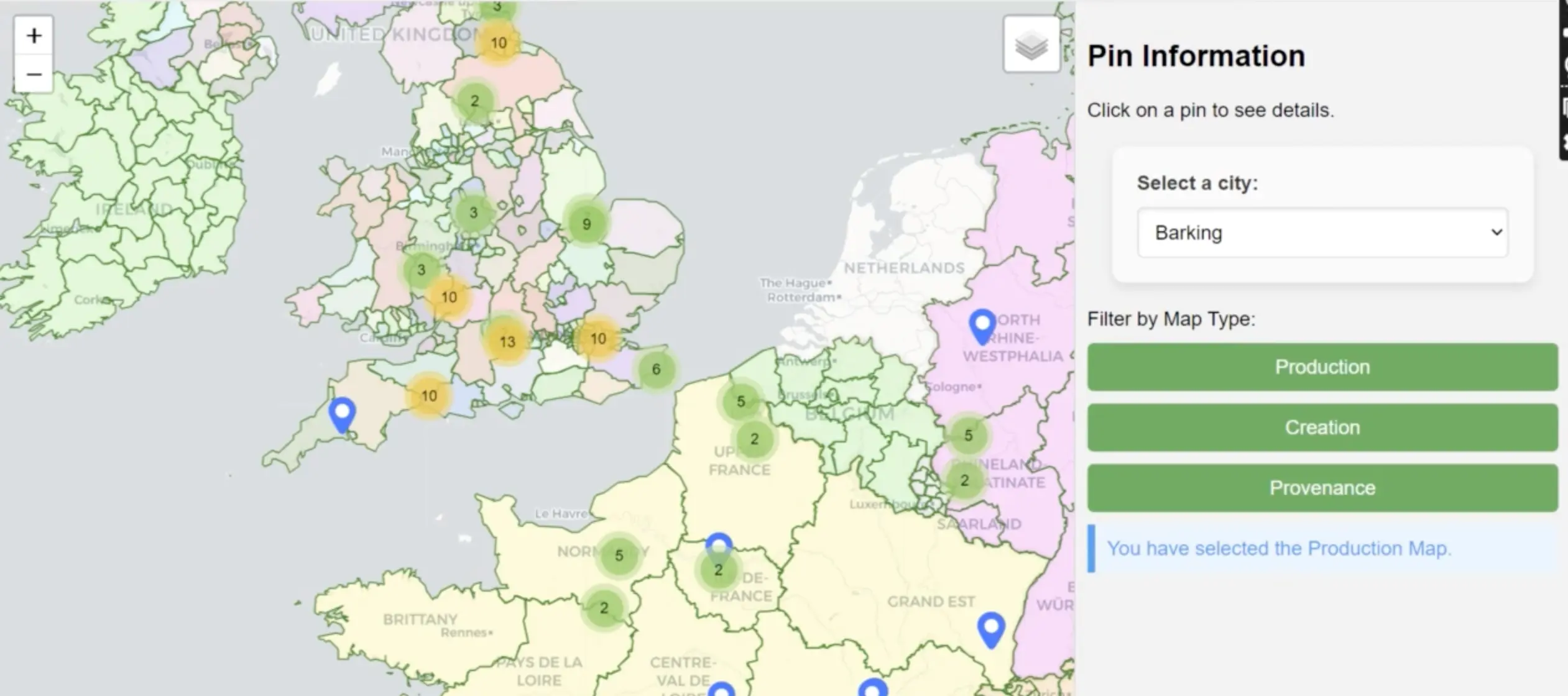Linked metadata for
english language texts 1000–1300
Searobend brings together key metadata about English-language manuscripts, works, texts and scribes, 1000-1300 and beyond, from sixteen authoritative resources into a knowledge graph using linked data technologies. Through this website, academics, the public and learners, can explore and interrogate the knowledge graph to find out about writing in this period.
Learn MoreSearobend is dedicated to the memory of Helmut Gneuss (1927-2023),
Donald Scragg (1936-2021) and Margaret Laing (1953-2023).
Her mon mæg giet gesion hiora swæð.
Meet the team behind the searobend project
Searobend brings together expertise from the Arts and Humanities and STEM, as encouraged by the Irish Research Council’s Coalesce scheme. The team members in the School of English contributed their knowledge of philology, literary history, historical linguistics, book history, and corpus linguistics, domains already inherently interdisciplinary.
The team members in Computer Science brought their skills in linked data technologies, human-computer interaction and interface design. The team was augmented with a number of research assistants, many drawn from the interdisciplinary M. Phil in Medieval Studies, and supported by an international advisory board.
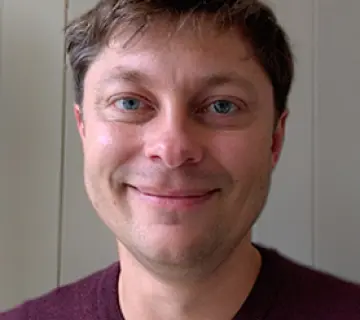
Mark Faulkner
Arts and Humanities PI +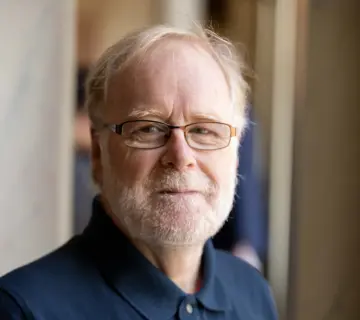
Declan O’Sullivan
Computer Science Co-PI +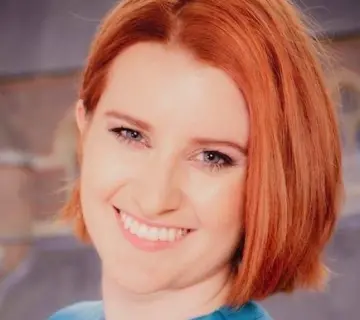
Colleen Curran
Postdoctoral Research Fellow +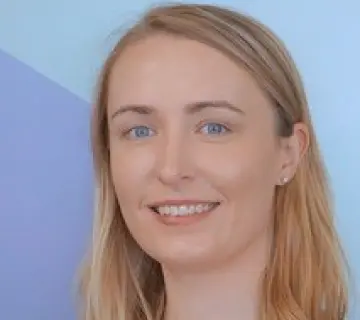
Lucy Mckenna
Postdoctoral Research Fellow +Ivan Bacher
Research Engineer +
Mark Faulkner
Arts and Humanities PI- Mark Faulkner is the Arts and Humanities PI on the Searobend Project. He is Ussher Assistant Professor in Medieval Literature in the School of English at Trinity College Dublin. He has published widely on twelfth century English and is the author of A New Literary History of the Long Twelfth Century: Language and Literature between Old and Middle English (Cambridge University Press, 2022) and editor of the forthcoming Critical Anthology of Twelfth-Century English: Writing the Vernacular in the Transitional Period (Arc Humanities Press). Another strand of his work, evident in articles like Habemus Corpora: Reapproaching Philological Problems in the Age of Big Data Centres on bringing new quantitative precision to our understanding of the mediaeval textual record.
- He collaborates frequently with computer scientists, including linked data specialists, NLP experts, machine learning experts and computational statisticians. Current major projects include Ansund, a new open access corpus of Old English based on Handwritten Text Recognition, and the development of techniques for semi-automated linguistic profiling and cluster analysis of mediaeval texts. Mark has also worked closely with Trinity’s Library to increase public access to manuscripts through lecture series like Beyond the Book of Kells and the Carnegie-funded Manuscripts for Medieval Studies project, and founded and directs the Trinity Centre for the Book, having also developed Trinity’s manuscript-focused M. Phil in Medieval Studies.

Declan O’Sullivan
Computer Science Co-PI- Declan O’Sullivan is a Professor in Computer Science at the School of Computer Science and Statistics, and is a co-applicant Principal Investigator in the ADAPT SFI Research Centre. Data and its relationship with Machine Learning and Artificial Intelligence algorithms, is increasingly dominating the research landscape, as intelligent applications become embedded in our daily lives. Prof. O’Sullivan and his team’s research in Knowledge Graph Techniques, which extracts, transforms and integrates data, is central to this relationship. People and machines can benefit from knowledge graph techniques for purposes such as data integration, knowledge discovery and in-depth analyses.Declan O’Sullivan is a Professor in Computer Science at the School of Computer Science and Statistics, and is a co-applicant Principal Investigator in the ADAPT SFI Research Centre. Data and its relationship with Machine Learning and Artificial Intelligence algorithms, is increasingly dominating the research landscape, as intelligent applications become embedded in our daily lives. Prof. O’Sullivan and his team’s research in Knowledge Graph Techniques, which extracts, transforms and integrates data, is central to this relationship. People and machines can benefit from knowledge graph techniques for purposes such as data integration, knowledge discovery and in-depth analyses.
- Since joining TCD from industry in 2001, he has established himself as an international research leader in his field: authoring 260+ scientific peer-reviewed papers and international Journals; being a member of 3 journal editorial boards and having undertaken 12+ chair roles in IEEE and IFIP conferences over the years. He has won competitive research funding as PI and Co-PI of approximately 7.8M euro. Funding has been won across a range of funding programmes: European Commission (H2020 and Marie Curie); Science Foundation Ireland (FAME, CNGL, ADAPT); HEA PRTLI (NEMBES, TGI) and from industry: Huawei, Accenture, Ericsson, Nokia Bell Labs, Ordnance Survey Ireland, Central Statistics Office. He was elected as a Fellow in Trinity College Dublin in 2019 in recognition for the quality of his contributions.

Colleen Curran
Postdoctoral Research Fellow- Colleen Curran is a Postdoctoral Research Fellow on the Searobend project. She was previously employed as the main Anglo-Latin and manuscripts Postdoctoral Research Fellow on 'A Consolidated Library of Anglo Saxon Poetry', an ERC-funded project based in the Faculty of English Language and Literature at the University of Oxford. Her research focuses on hybrid scripts in the Insular world and the differences in the physical presentation of Latin and the vernacular on the manuscript page. She is also interested in the ever-evolving role of Digital Humanities within the study of mediaeval manuscripts, and is now a Marie Curie Postdoctoral Research Fellow in the Department of Classics and the University of Galway.

Lucy Mckenna
Postdoctoral Research Fellow- Lucy McKenna is a Postdoctoral Research Fellow on the Searobend project. She previously worked as a postdoc on the Access Risk Knowledge (ARK) Project in the ADAPT Centre, Dublin City University. Lucy's research focuses on the use of Linked Data in the library, archive and museum domains.
Ivan Bacher
Research Engineer- Ivan Bacher is a Research Engineer on the Searobend project, specializing in researching, designing, and implementing human-centered solutions to complex problems. His expertise spans information visualization, human-computer interaction, and user interface design. Ivan has worked on a variety of projects with industry partners and academic institutions. He is a member of the ADAPT Centre in Trinity College Dublin.

Oxford, Bodleian Library, Bodley 130, fol. 44r. Image reproduced from the Digital Bodleian under CC BY-NC 4.0 Deed
LEARN HOW TO USE THE SEAROBEND SEARCH TOOL
Searobend offers users three main ways to engage with the data about manuscripts, works, texts and scribes it links: free-text predictive search, a structured advanced search, and an option to browse by different categories, for instance place of origin.
Learn More

